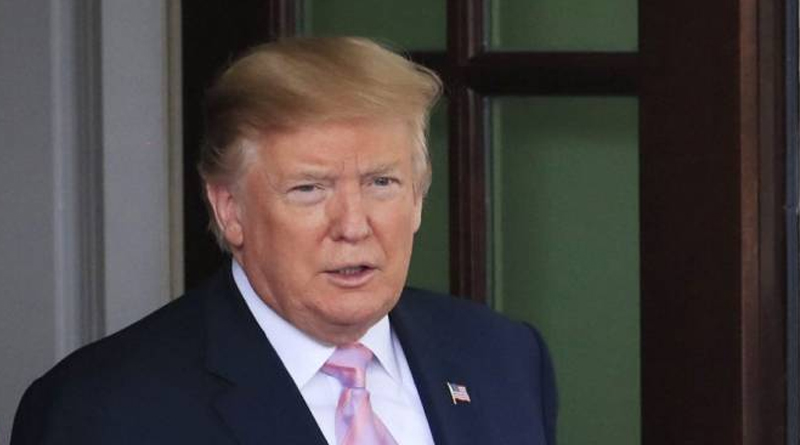Nobody knows how long the coronavirus pandemic will last. But one thing is certain: it has killed Donald Trump’s chances of being re-elected as US President. He may survive the virus and live, but he will die politically.
The US election is still over seven months off — a long time in politics. Predictions seven months in advance are foolhardy. But a virus is immune to normal politics, monetary or fiscal stimuli, interest rates, loan waivers and all conventional tactics for combating economic crises or winning elections. In the best-case scenario, the pandemic will last three months, and the world will bounce back to normal, perhaps just in time for the US presidential election on November 7. In the worst-case scenario, the virus will still be spreading medical and economic havoc in November.
Even in the best-case scenario, Trump will lose. No matter how well he handles the virus, no matter how brilliantly doctors and civil society respond to the challenge, millions are still going to get infected and thousands are going to die. Now, a purely statistical approach shows that in a normal year, 20,000 to 70,000 Americans die of flu. An additional 5,000 deaths from the coronavirus will barely create a ripple.
But even in this best-case scenario, the President will not be able to escape blame. Remember, Hurricane Katrina in 2005 was not the fault of President George Bush, but it killed him politically. Local officials who allowed poor blacks to illegally build townships in low-lying areas were clearly at fault. Yet Bush could never shrug off the infamy of the disaster because the buck stops with the President, no matter what. The same will be true of the coronavirus. The buck will stop with Trump, even if he tries to call it a Chinese virus. That will sink him in the coming election.
Trump initially tried to pooh-pooh the virus by saying it was tiny compared with normal flu infections and deaths. That public-relations blunder will not be forgotten.
Trump and other Republicans did a quick volte face and declared that this was the greatest medical challenge in a century. Cities, states and large chunks of the country were locked down to keep outsiders from entering. Every conceivable restriction to minimise contact and stem infection was imposed. Bars, restaurants, theatres, cinema halls, churches, sports events and gatherings of more than a handful of people were shut down.
Nobody knows when they will reopen. Airlines, buses, trains and ships are being mothballed. Many factories and offices are shutting for want of work, and others are shutting for want of workers. Everybody is being urged to work out of home, but there are severe limits to this. A massive fall of at least 10-12% fall in GDP has been estimated for a month or two, and nobody knows how long this will continue.
Even in the best-case scenario, the recovery will be slow and hesitant. Never before have governments deliberately created a recession by shutting down movement and activity. Fear has compounded the problem: even those allowed to move would rather not. In the best-case scenario, infection and deaths may peter out in three months. Will everybody suddenly come out and dance on the streets and go on a spending and vacation spree? Not at all. Many will remain sceptical about government guarantees. Many will worry that travellers from abroad will continue to bring in fresh infections for months. Rational people will postpone going to office, going on vacation, going to Disneyland or on cruises. Many will hesitate even to vote unless they can do so electronically. Door-to-door canvassing for votes will disappear.
The US government proposes to send out cheques of $1,000 to all adults soon, and additional cheques if activity does not pick up. This violates orthodox economics, but no politician gives a hang about orthodoxy in this crisis, and rightly so. However, will people getting $1,000 cheques go on a spending spree? Will they suddenly fill theatres and shopping malls?
Not a chance. They will spend on necessities but will hoard part of the money for contingencies, including health contingencies. Make no mistake, this recession can quickly snowball into massive business failures, which will then hit the banks and may cause another financial crisis. Not till 2020-end can we know if we have another financial crisis. Till then, modesty in household spending is no more than common sense. Yet that same common sense will hobble an economic recovery.


